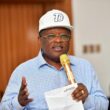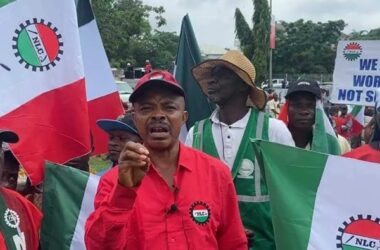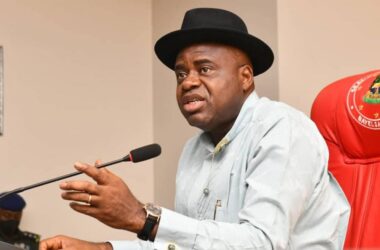***Veteran journalist calls for greater humanitarian response to Benue and Plateau killings
Former presidential aide and veteran journalist, Laolu Akande, has called on the National Assembly and Nigeria’s political elite to take urgent steps toward making rotational presidency a constitutional matter.
Speaking during the My Take segment of Inside Sources with Laolu Akande on Channels Television on Friday, Akande emphasized that institutionalizing the principle of rotating the presidency among Nigeria’s geopolitical zones is not only necessary for unity, but already reflects a broadly accepted national consensus.
“The ethnic and regional dynamics of our politics and governance demand this kind of consensus which the major parties have already subscribed to, even though with varying interpretations. By the way, such diversity of interpretation will be killed once the rotational presidency is constitutional,” the veteran journalist noted.
Akande expressed disappointment that the bill proposed by Deputy Speaker of the House of Representatives, Benjamin Kalu, seeking to codify rotational presidency, was not even allowed to pass second reading. He described Kalu’s initiative as “politically sensible” and lamented that his colleagues failed to recognize its national importance.
“Representative Benjamin Kalu had enough political acumen and good sense to propose the codification of the rotational presidency, which seems to many of us somewhat of a national consensus already. But it is lamentable that Kalu could not muster enough political clout among his own colleagues to see the bill he tabled get through,” Akande said.
He argued that the failure to formalize rotational presidency in the Constitution continues to weaken Nigeria’s national cohesion and shortchanges the spirit of equity. He cited the case of late President Umaru Musa Yar’Adua’s death in 2010, noting that had rotational presidency been enshrined in the Constitution, the North would not have lost its turn so abruptly.
“If we are serious that there has to be unity in this, our fledgling idea of a nation that we call Nigeria, and if we are serious that we want everyone from the geopolitical zones in this country to feel a sense of belonging, then we have to take this idea of rotational presidency forward by making it a constitutional issue,” he said.
Akande dismissed fears that codifying rotational presidency would compromise merit, stating that both the North and South have consistently produced competent presidential contenders. According to him, “There are enough great presidential candidates at any point in time either from the South or from the North, and so merit should never suffer.”
He added that formalizing what is already an informal consensus would end the constant bickering and ambiguity that trail presidential zoning arrangements in political parties.
On Killings in Benue and Plateau States: Time for Stronger Action
Shifting focus to the lingering humanitarian crisis in Benue and Plateau states, Akande condemned the continued killings in both regions and called for intensified support for internally displaced persons (IDPs).
He applauded the efforts of both federal and state governments, but urged that more be done to provide immediate relief and long-term solutions for affected communities. He noted that despite some interventions by international agencies and NGOs, survivors remain largely underserved.
“Let us renew the calls for adequate supply of relief materials and provision of humanitarian services to the affected communities. We note that both the states and the federal agencies are moving in this direction, and we are urging for more,” Akande stressed.
He commended the United Nations Population Fund (UNFPA) for its recent support to Benue State, which included distribution of 2,000 dignity kits, training of social workers, midwives, and community volunteers, and strengthening of the state’s humanitarian capacity. He also lauded the Stephanos Foundation for donating food and relief materials to displaced persons in Bassa Local Government Area of Plateau State.
Akande further praised the Christian Association of Nigeria (CAN) for its support to survivors of attacks in Bokkos and Bassa Local Government Areas, but urged that these efforts be scaled up.
“We need more and more, including how we can secure the survivors of these callous attacks, how we can secure for them decent IDP camps, ensuring that their children continue education, and provide decent health care for them. We have wasted time, and that is painful. It’s the truth,” he said.
Akande concluded by holding the Tinubu administration accountable for addressing the insecurity and humanitarian crises in Nigeria, stressing that now is the time for decisive action.
“That is why we must all do whatever it takes to hold the Tinubu administration responsible, while it yet may, to fix this and fulfil those unmet expectations of the Nigerian people.”








